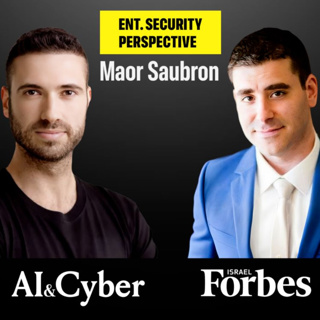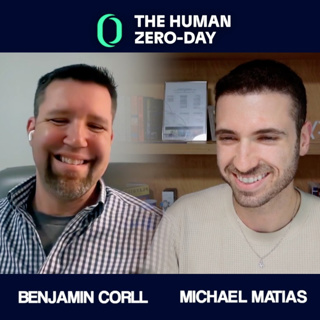
The Human Zero Day Series | Ep1163: Benjamin Corll: Human Risk in Cybersecurity
With decades in cybersecurity, Benjamin Corll has seen threat landscapes evolve from simple antivirus battles to AI-driven social engineering. For Corll, every breach traces back to people—both as the strongest defense and the weakest link. In this conversation, he unpacks the persistence of ransomware and business email compromise, the rise of AI-assisted fraud, and why criminals increasingly “log in” instead of “hack in.” He explains why defense in depth must integrate technology with human training, process checkpoints, and zero trust principles. Most importantly, Corll shares how to make awareness programs relevant, engaging, and role-specific—turning employees into active sensors who strengthen security culture from within.
27 Aug 32min
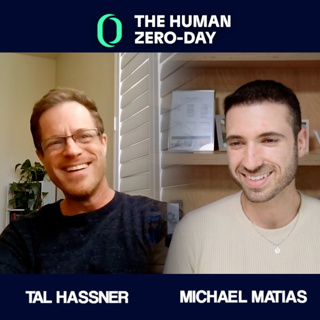
The Human Zero Day Series | Ep1162: Tal Hassner: Rethinking Deepfake Defense
From disappearing people in videos in the late 1990s to shaping AI and vision systems at Intel, Tal Hassner, Chief Scientist for Computer Vision, has watched synthetic media evolve from lab curiosities to global challenges. In this conversation, he dismantles the idea that “is it fake?” is the central question for security. Instead, he lays out a three-pillar approach—provenance, attribution, and integrity—that can outlast the arms race between deepfake creators and detectors. Drawing on decades of research and product experience, Hassner explains why harmful content remains harmful regardless of its origin, and why enterprises must shift from chasing fakes to building trust into their systems from the ground up.
21 Aug 41min
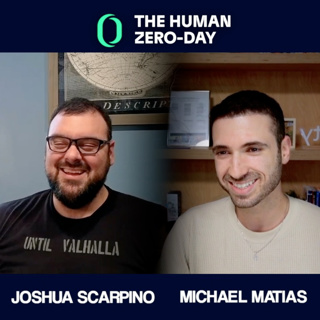
The Human Zero Day Series | Ep1161: Dr. Joshua Scarpino: Personalizing Security Culture
From phishing tests to AI-driven impersonation scams, Joshua Scarpino has seen firsthand how the human element remains the most critical factor in cybersecurity. Drawing on his experience across organizations from NIST to Trust Engine, he explains why technology alone can’t safeguard an enterprise. Instead, effective defense comes from a culture where security is personal—linked to daily habits and values employees carry beyond the workplace. With threats evolving faster than traditional training can adapt, Scarpino shares how bite-sized, relevant, and personalized awareness programs not only reduce risk but transform how teams think, act, and protect.
14 Aug 16min
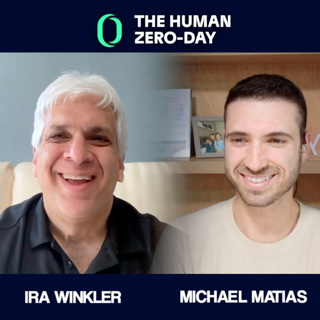
The Human Zero Day Series | Ep1160: Ira Winkler: Awareness Is Not a Strategy
How do you protect an organization when every link in the chain can—and will—fail? Ira Winkler, NSA veteran and author of You Can Stop Stupid, unpacks why human error isn’t the root of security breaches—it’s the visible tip of deeper systemic gaps. From smashing the myth of awareness-as-strategy to advocating for consequence-driven behavior change, Ira brings sharp wit and decades of hands-on insight. His stories span black-bag hacks, social engineering triumphs, and boardroom-level shifts needed to reimagine how we address human vulnerabilities in a world of zero days.
13 Aug 34min
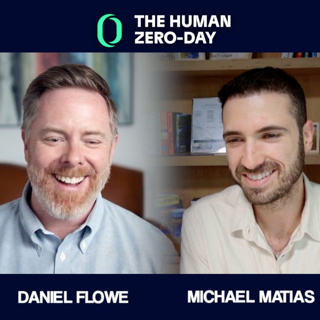
The Human Zero Day Series | Ep1159: Daniel Flowe: Building Trust in Digital Identity
What happens when your “meatspace” identity can no longer keep up with your digital life? Daniel Flowe, Head of Digital Identity at the London Stock Exchange Group, takes us inside the tectonic shift reshaping how we verify who we are online. From the flaws of content-based systems to the promise—and risks—of government-issued e-IDs, he unpacks what equitable, secure, and scalable identity should look like in an AI-infused world. With insights drawn from India, Africa, and beyond, Daniel reveals why the West is lagging—and what we must do to catch up.
9 Aug 18min
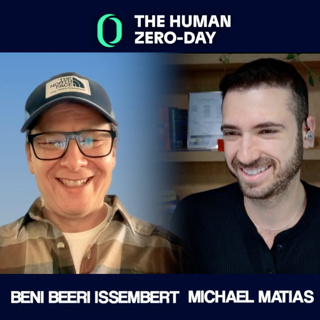
The Human Zero Day Series | Ep1158: Beni Beeri Issembert: Who Am I in AI?
Beni Beeri Issembert’s journey from aspiring philosopher to Head of AI Research and Ethics at Metaphysic is anything but linear. With a deep reverence for Nietzsche and an early curiosity about ethics in technology—long before it became a buzzword—Beni brings a rare perspective to synthetic media and AI. In this thought-provoking conversation, he explores how deepfakes challenge our sense of truth, what it means to have an identity in a world of synthetic realities, and why human discernment remains our most powerful tool. As AI continues to blur the lines between real and fake, Beni offers a hopeful yet grounded view on how we might navigate the future—with integrity, curiosity, and resilience.
7 Aug 22min
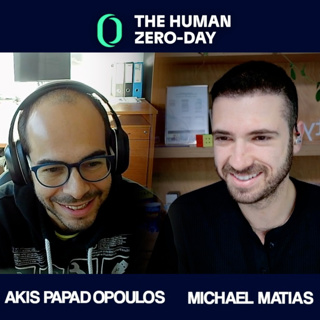
The Human Zero Day Series | Ep1157: Akis Papadopoulos: Verifying What’s Real
Years before deepfakes hit the mainstream, Akis Papadopoulos was already sounding the alarm. From early GAN breakthroughs to today’s ultra-realistic, low-res media threats, he’s led research at the intersection of AI, media forensics, and public trust. In this episode, he explores why detection alone isn’t enough—and how explainability, user experience, and civic responsibility must shape our response to synthetic media.
5 Aug 22min
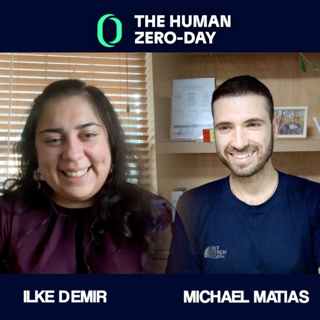
The Human Zero Day Series | Ep1156: Ilke Demir: Detecting Deepfakes by Heart
Ilke Demir’s journey from computational geometry to combating deepfakes began with a question: what makes something truly human? At Intel’s Trusted Media team, she developed FakeCatcher, a tool that detects deepfakes using biological signals like heart rate. In this episode, she unpacks the technical, ethical, and social layers of media trust, explaining why provenance and human perception matter as much as detection. Her insights reveal how defending truth in the AI age isn’t just about better algorithms—it’s about understanding people.
3 Aug 24min
